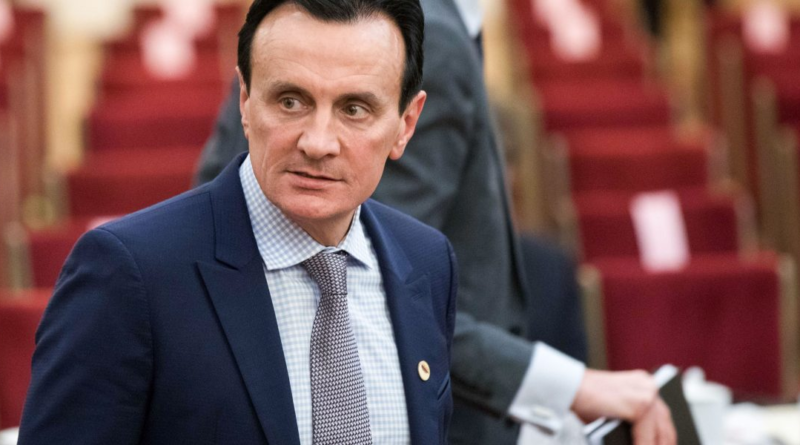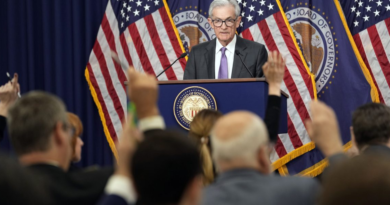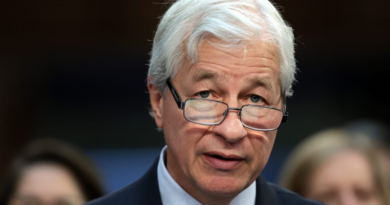AstraZeneca CEO 'massively underpaid' despite earning double Novo Nordisk boss
For most CEOs in the U.K., a salary exceeding $20 million is the stuff of dreams. However, for AstraZeneca’s CEO, it appears to be sparking a battle between those who think his pay packet is excessive, and those who think it’s highly insufficient.
Pascal Soriot is facing a revolt from shareholders after two advisory groups urged them to vote against the CEO’s proposed £1.8 million ($2.3 million) raise because they believe it is “excessive.”
Shareholder groups Glass Lewis and ISS, which have a track record of pushing back on pay packages at groups like Unilever, are urging investors to reject Soriot’s proposed £18.7 million ($23.7 million).
“The scale of the increase remains a concern: the degree to which the proposed pay quantum deviates from other large FTSE companies is very significant,” ISS wrote in its report on Soriot’s pay.
“Looking beyond the FTSE 100, the Executive Directors’ existing package, without amplification, is competitive against European peers.”
However, one of the pharmaceutical group’s biggest shareholders has pushed back, arguing the CEO should be paid well more than last year’s £16.9 million ($21.5 million) pay packet as a reward for his long-running leadership of the company.
‘Compensation issue’
“There is a compensation issue at AstraZeneca,” Rajiv Jain, chief investment officer at top-20 shareholder GQG Partners, told the Financial Times.
“The CEO is massively underpaid… given AstraZeneca’s impressive turnaround since he joined more than a decade ago.”
Indeed, since Soriot took the reigns of the U.K.’s largest pharmaceutical, the company has increased in value by around 280%.
However, shares have been more stagnant since the group reaped the rewards of its COVID-19 vaccine rollout.
In the last 12 months, AstraZeneca’s shares have fallen around 8%. Still, soundings from investors suggest there is still an openness to the idea of giving Soriot a raise.
“Pascal is definitely underpaid for his performance, compared to some CEOs in the US who are overpaid for not very good performance,” another unnamed top-20 shareholder told the FT.
It’s not the first time the pharmaceutical boss has tussled with advisory groups over his package, which is a combination of a base salary and performance-related rewards.
In 2017, Soriot faced a backlash from investors over his £9.4 million ($11.9 million) pay package. A year later, 35% of investors voted against an upgraded packet totaling £14.3 million ($18.2 million).
The opposition to Soriot’s salary grated with the boss, particularly given U.S. pharma group Pfizer’s then-CEO Ian Read was earning three times as much at the time.
“The truth is I’m the lowest-paid CEO in the whole industry,” Soriot told The Times of London in 2018. “You know, it is annoying to some extent. But at the end of the day, it is what it is.”
Representatives for AstraZeneca and Glass Lewis didn’t immediately respond to a request for comment.
A representative for ISS declined to comment further on the group’s compensation report.
Europe’s best-paid pharma boss
If AstraZeneca’s Soriot can argue that his $21.4 million is not only justified, but insufficient, a number of his competitors could likely stake their own claim for substantial raises.
The French-Australian CEO has closed the gap with Pfizer to make almost as much as current CEO Albert Bourla. He lags Eli Lilly’s CEO David Ricks, who took home $26.6 million last year.
Soriot’s pay packet in 2023 made him the highest-paid pharmaceutical boss in Europe, beating out the CEOs of companies like Novartis, Roche, and Novo Nordisk.
Indeed, Soriot earned more than double Novo Nordisk CEO Lars Fruergaard Jørgensen’s 68.2 million kroner ($9.9 million) pay package last year.
That’s a noticeable gap given Novo Nordisk’s performance in the last two years, which has seen the company more than double in value with the help of appetite suppressant Ozempic.
Novo’s rise in the past couple of years has helped it push past a $500 billion valuation and helped it take the mantle of Europe’s most valuable company from Bernard Arnault’s LVMH.
The debate over Soriot’s salary is part of a wider battle over CEO compensation in the U.K., with proponents of higher pay arguing companies need to pay more to attract the best talent.




